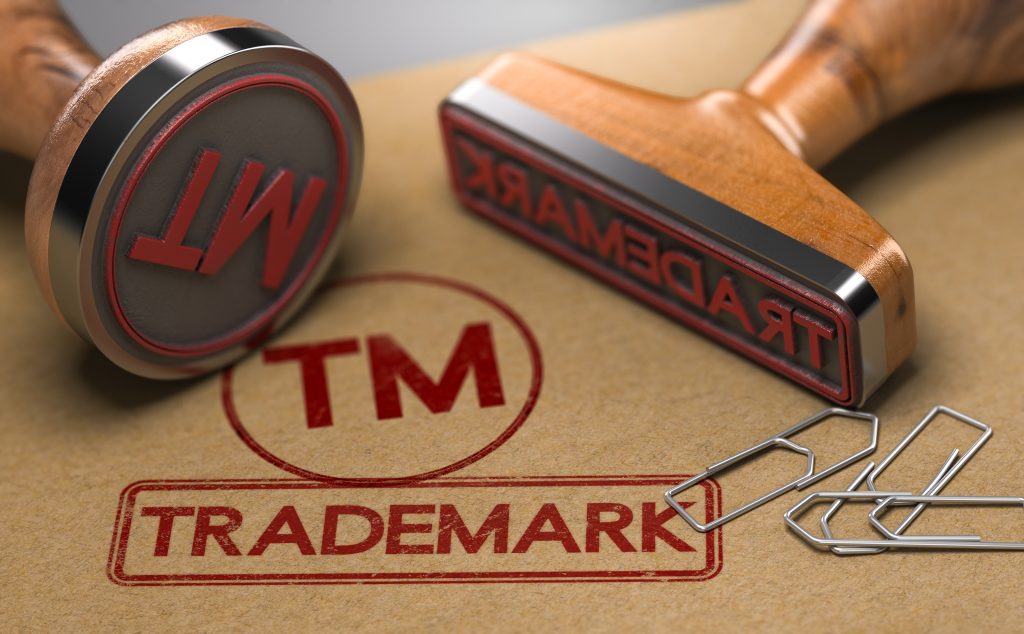By Oliver Oguz
The importance of trademarks in our modern, digitally connected global economy is becoming increasingly recognized. This concept, often underappreciated, is fundamental to a business’s overall strategy, particularly regarding its brand identity.
Trademarks are the gears that drive this engine of brand identity, as they create a unique and identifiable aspect that separates a company’s products or services from its competitors.
This article aims to provide a comprehensive exploration of the multifaceted importance of trademarks to businesses of all sizes, and especially for startups.
Understanding the Trademark
In its most basic form, a trademark is a recognizable sign, design, or expression that uniquely identifies products or services of a particular source from others. It can be another term for a brand or brand name.
This may take the form of a name, word, symbol, slogan, or device that serves to both identify and distinguish a business or product from others in the market.
The specificity and uniqueness of a trademark allow a company to stand out, creating a distinct connection between the company and its products or services in the minds of consumers.
This point of differentiation becomes the first step to gaining consumer loyalty, which further emphasizes the importance of a strong and unique trademark.
The Trademark’s Core Value
The unique identifiers associated with a business, such as its logo, name, or slogan, become central to its identity and its ability to communicate its value proposition to customers. Trademarks are, in essence, a powerful tool for businesses in distinguishing their products and services in the market.
This distinguishing ability grants businesses a competitive edge and allows them to carve out their own specific niches in a saturated market.
But a trademark is not just a matter of legal protection and intellectual property; it has a direct connection to a business’s profitability.
A memorable trademark can translate to increased brand recall, more customer loyalty, and, consequently, more revenue for the business.

The Importance of Trademarks Illustrated
An example of the value of a trademark can be seen with globally recognized companies such as Apple or Nike. The simple apple logo or the ‘swoosh’ symbol immediately recall the companies behind these marks.
These companies have invested heavily in building their trademarks, which are now synonymous with innovation and high quality, respectively. Such powerful recognition is a testament to the value of a strong and well-managed trademark.
The Communicative Power of Trademarks
Trademarks play an essential role as an effective communication tool. They convey intellectual and emotional attributes and messages about a company, its reputation, and its products or services. This communication occurs even without language.
A well-known trademark can instantly communicate a company’s values, products, reputation, and service quality. In a way, a good trademark is a condensed version of the company’s story.
For example, the Coca-Cola brand. The name itself, the specific font used, and the distinctive red and white colour scheme all contribute to the overall trademark of Coca-Cola. This trademark immediately communicates messages of refreshment, positivity, and even nostalgia for past experiences with the product.
The sheer communicative power of this trademark is a testament to the company’s effective marketing strategies over the years.
Trademarks Establishing Business Identity
The unique name, logo, or slogan of your business becomes a source of brand recognition and trust. The consistent use of these unique identifiers enables your business to create a loyal clientele and enhance the company’s goodwill.
Trademarks, therefore, play a pivotal role in establishing and reinforcing the business’s identity and reputation.
McDonald’s, for instance, illustrates the power of a strong trademark. The company has used its unique name, golden arches logo, and “I’m lovin’ it” slogan to build a strong and recognizable global brand.
These elements of McDonald’s trademark have been consistently used across all their marketing platforms, allowing customers to instantly recognize and trust the brand.
How Trademarks Shape Consumer Decisions
Trademarks significantly influence consumer purchasing decisions. They capture the consumer’s attention, making products stand out from the competition.
Furthermore, trademarks help prevent consumer confusion by indicating the source of the products and maintaining a consistent level of quality.
When a consumer is purchasing a smartphone, for instance, they might choose an iPhone over other brands because the Apple logo (a component of Apple’s trademark) signifies to them a guarantee of quality and seamless user experience.
This highlights the influence trademarks can have on consumer perception and purchasing decisions.
Legal Protection Afforded by Trademarks
Beyond their role in business identity and communication, trademarks offer legal protection to businesses.
Once a business has registered its trademark, it obtains the exclusive right to use it, thus creating a legal presumption of ownership. This prevents competitors from using the same or similar trademarks, helping to avoid confusion in the market and the dilution of the brand’s value.
This legal protection extends beyond direct infringement and can even cover cases where a competitor uses a trademark confusingly like the business’s own.
Moreover, in the event of an infringement, the holder of a registered trademark has a right to take the issue to court and demand compensation, ensuring that their brand is always protected.
The Broader Impact of Trademarks on Economic Development
Trademarks also have a broader macroeconomic impact. They facilitate the process of economic development by promoting competition and driving economic growth.
By helping to carve out distinct market spaces and fostering brand loyalty, trademarks allow businesses to grow and expand, stimulating job creation and investment.
Furthermore, trademarks can attract foreign investment by offering a level of assurance regarding the protection of intellectual property rights.
In a world where businesses are increasingly operating on a global scale, the role of trademarks in economic development cannot be overstated. The attraction of foreign investment not only benefits individual businesses but also contributes to the overall economic growth of a region or a country.

The Future of Trademarks
The significance of trademarks in the contemporary digital era is immense. As businesses continue to operate in increasingly crowded and competitive markets, the ability to differentiate oneself is crucial. Trademarks offer businesses the ability to do this.
They allow businesses to develop unique brand identities, communicate their values effectively, and legally protect their position in the market. Furthermore, trademarks can stimulate economic development by promoting competition and attracting investment.
The rise of the digital age and the advent of e-commerce have made trademarks even more essential. With online shopping, customers can’t physically examine products before buying.
Therefore, trademarks have become an assurance of quality and source of trust, greatly influencing online purchasing decisions.
Finally, it’s essential to note that managing trademarks is a continuous process. It involves constant nurturing, protection, and enforcement.
It also requires keeping abreast of market trends and changes in consumer behavior, ensuring the trademark continues to align with the business’s evolving brand strategy.
Thus, while the establishment of a trademark is a critical first step, its ongoing management is equally, if not more, important.
In conclusion, the trademark is more than just a brand name or logo; it is the bedrock of a company’s identity, the messenger of its value, and a powerful tool in its overall business strategy. It’s a legally protectable asset and a valuable piece of a company’s intellectual property portfolio.
A well-managed and legally protected trademark can be the difference between success and failure in our globally connected and competitive world. Hence, every business, regardless of its size or industry, should understand and leverage the power of trademarks to thrive in the marketplace.
About Oliver Oguz

Oliver is Lord Alan Sugar’s most recent business partner. In his first year of taking over Trademark Wizards, the firm became the UK’s No. 1 trademark filer, according to official UKIPO and CITMA statistics. After completing a Higher National Diploma in Business and Finance, Oliver read a bachelor’s degree in law and went on to complete a master’s degree in Intellectual Property and Competition Law at King’s College, London.
He then undertook the Postgraduate Certificate in Trademark Law and Practice at Queen Mary University, London, and has completed the Professional Certificate in Trademark Practice at Nottingham Law School.
Oliver has worked as part of the in-house legal team of a US multi-national internet corporation that is globally known for its web portal, search engine, and related services.
Before founding Trademark Wizards, he worked as a trademark lawyer and senior consultant at an established IP consultancy firm, dealing with trademark-related issues across the board, from searching, filing, and prosecuting trademark applications globally to advising on contentious issues such as oppositions, cancellations, infringement actions, and domain name disputes.
Oliver believes that a company’s brand and reputation are two of its most important assets. He enjoys the responsibility of protecting such important IP assets for his clients, whose existence he believes is “crucial to the survival of a business.”
Trademark Lawyer | UK Trademark Office | Trade Mark Wizards


